A Jordan Bookseller’s 24-Hour ‘Emergency Room for the Mind’
At his bookstore in Amman, Hamzeh AlMaaytah administers life-affirming literature.
Hamzeh AlMaaytah rarely sleeps, but when he does, it’s usually on the mattress hidden behind a screen in the back of his bookshop. Hamzeh, 36, is one of Amman’s most dedicated bookshop owners, and certainly its most eccentric. He tends to leap instead of walk, is prone to poetic pronouncements, and speaks most often in Fusha, the literary form of Arabic, rather than the Jordanian dialect typically used for daily speech. He reveres the written word. In response to text messages or Facebook posts he will send back a picture of his handwritten answer. “There is so much intimacy and knowledge in the handwriting of a friend,” he says, bemoaning that his practice has yet to catch on.
A fourth-generation book owner, Hamzeh describes his work as a calling. “I run an emergency room for the mind,” he explains, while sipping coffee near the entrance of the shop late one morning. He wants to ensure there is always a place in Jordan where one can access the healing power of books, no matter the hour or the price. Hence the mattress in the back. Hamzeh keeps his store open 24/7, a practice he inherited from his father, who moved the family bookstore from Jerusalem to Amman before the 1948 Arab-Israeli war. He’ll occasionally get late-night relief from two former employees, a pair of Syrian brothers who fled their native Homs. All of his prices are negotiable, and he has both a generous loan policy and a robust book exchange program, where patrons can swap any book they bring in for one in the store.
The shop, al-Maa Bookstore or Mahall al-Maa in Arabic, is nestled right against the ancient Roman Nymphaeum public water fountain, down the way from the Grand Husseini Mosque and the local Sugar Market, on a street that was once the Amman River. Al-maa means “water” and, like the once-public fountain, Hamzeh wants his books to be as accessible as water. An underground well still bubbles at the entrance.

For the uninitiated, al-Maa looks like any other of the many book kiosks and independent shops that dot nearly every corner of downtown Amman. But for hundreds of students, poets, and book-lovers the world over, al-Maa is a haven, one of the few places on earth where nothing matters more than a love of books.
“Sometimes, I come here in the afternoon and stay for two days,” Hussein Alazaat, a graphic designer with a special interest in Syrian books and children literature, says. “There is nobody like Hamzeh. We can discuss all the issues in the world.”
Eric Boodman, a journalist living in Boston who met Hamzeh when visiting Amman for a few weeks in summer 2015, was most struck by his warmth. “Visiting Hamzeh is like entering another world,” he wrote me. “My friend Angus and I went back almost every day after we first met him, so we could drink tea and talk and hear him recite poetry while accompanying himself on the oud or the synth.” For tea, Hamzeh would loop his pot onto a string and lower it into the shop’s well, collecting the gurgling water.
Locals and visitors alike have a love for al-Maa that is palpable. Ahmed Murad, 19, takes comfort in knowing there is a place where he will always be greeted with enthusiasm, a place that is never closed. “I come late at night, and sit with Hamzeh discussing literature,“ he says one afternoon, after discussing Kafka, the art of 19th-century correspondence, and his preference for Russian writers over French. Murad, who finished school through ninth grade and lives in a nearby orphanage, is currently finishing a novel about life in the orphanage, and working to improve his spelling and grammar. “No other bookstore has this exchange program,” he says. “I exchange a lot of books here.” As we speak, a man enters with two shopping bags of his own books, ready to exchange them for Arabic poetry and English-language business manuals.
Hamzeh loves his customers, like Murad, but remains anxious about the strict education in his orphanage and that of other local schools, which he fears is too radical. He wants his bookstore to be an oasis away from some of the hateful opinions he sees accepted too often in broader Jordanian society. For this reason, Hamzeh censors his book collection, and adamantly refuses to sell the type of literature that makes the surrounding bookstores so profitable.
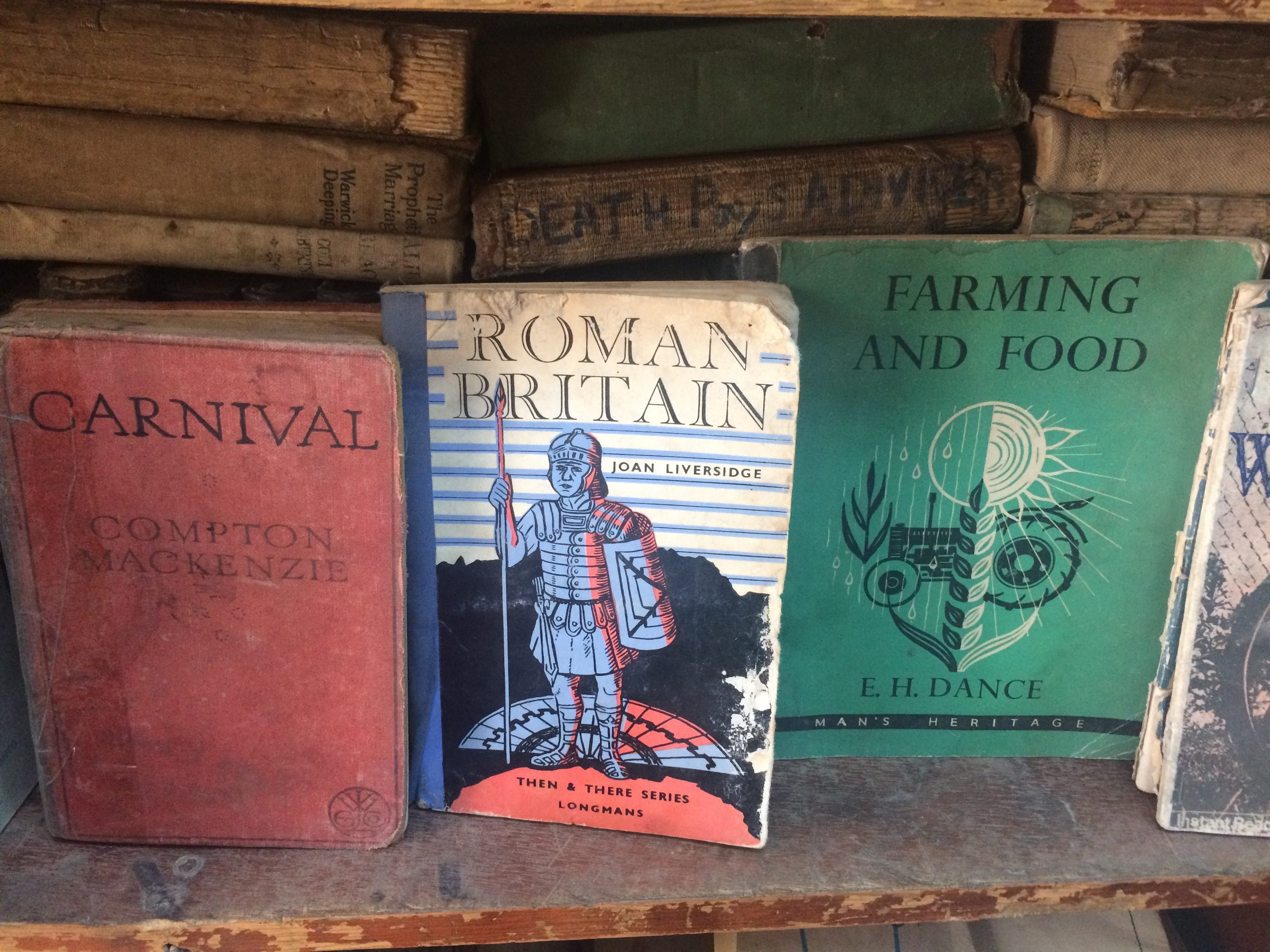
“If I were a merchant,” he says, “I would sell conspiracies, magic, genealogies, and anti-semitism.” Such fare is pretty standard in the area. When a friend and I wander into a nearby shop and ask for the Protocols of the Elders of Zion, we are enthusiastically given a copy, along with two additional books about other Jewish Zionist conspiracies that, in the words of the bookseller, “predicted with remarkable insight the Zionist takeover.” The shop a few doors down has Mein Kampf displayed alongside biographies of Gandhi and Tolstoy. While many Jordanians might express love for Jews, such conspiracy theories are widely accepted. Hamzeh not only refuses to sell such books, but spurns donations that glorify any type of hatred or violence. He shows me a graphic novel, which I flip through and politely describe as beautiful. He stops at one panel, where the man is hitting his wife and yelling at her. “You see that?” he says. “I would never let just anybody buy this book. Ideas can be dangerous.”
Alan Elbaum, a medical student in Berkeley, CA, says he once gave Hamzeh a copy of The Wind and the Wall, a 1979 collection by Nazarene poet Jamal Qa’war. Hamzeh refused the gift after noticing a line that described Israelis as “the butcher.” Elbaum, who first met Hamzeh during a summer stay in Jordan studying Arabic, has maintained a close friendship with him, and Hamzeh recently gave him six volumes of the Talmud in Arabic.
Al-maa holds about 2,000 volumes, with over 10,000 stored in a nearby warehouse. Outside his own inventory, Hamzeh makes sales by matching people with book-owners around Amman. He is intimately aware of local private collections and surrounding bookstore inventories, and people will often stop by with specific requests.
“I’ve seen him do this over a dozen times,” Elbaum says. “Somebody will come in looking for something, and he’ll leave and then come back a few minutes later, or sometimes the next day, with the book.”
Founded in Jerusalem in the 1890s by Hamzeh’s great-grandfather Salman, the family bookshop was known as al-Jahith’s Treasury. In 1921 the shop passed to Salman’s son Khalil, who would later buy the libraries of departing British officials in an auction bid, gaining a massive inventory that still fills Hamzeh’s shelves, from books on the Commonwealth to Latin primers. Khalil died in battle in 1947, and his son Mamduh moved the newly acquired books to Amman. There he would eventually marry and reopen the store. Mamduh died when Hamzeh—the youngest of his 10 children—was only 12, leaving his oldest son Hisham to manage the store.

“My father was a doctor for the soul,” Hamzeh says, describing how he would spend late nights with his father at the shop. “Anybody could walk in, and after a few questions he would know exactly what book to give you. He was always reading. I am not yet like this.”
In 2016 Hamzeh, who had operated his shop as a branch of the family store, split formally from the al-Jahith’s Treasury brand, ceding the title to his brother Hisham, who runs a more typical bookshop a few blocks away. Hamzeh had bought the British Mandate collection from his brothers already in 2012. While they remain on good terms, it seems that his near-fanatical reverence for all things written had begun to wear on the business relationship with his brothers, though Hamzeh sees himself as acting within his father’s spirit. “There can be no set price for a book,” he says. “It depends on the book, the person, and the author—when you put a price on something, you change the relationship between person and book. You say ‘this is 10 dinars, this is 20 dinars’ and then the person thinks one is better than the other. But how can I know how much somebody needs a particular book in a certain moment? Which book is the best for that person?” For Hamzeh, a first-edition Virginia Woolf could hold the same value as a 1933 biology textbook.
For Boodman, the Boston journalist, this attitude reflects Hamzeh’s deep belief in the power of words and learning. “He showed me a coloring book that doubled as a field guide to American deciduous trees right before pulling out a dusty old Ottoman dictionary,” Boodman recalls of one late-night visit to the store. “These books were as equally precious to him as the classical poetry he recited, and he wanted to share it all.”
When I ask Hamzeh if he has a favorite book, he clasps his heart in performative shock. “A favorite book! No! That is extremism! To say one book is the best, better than any other…no, I could never do it.” He loves all the books in his store equally and fiercely, and that is that.
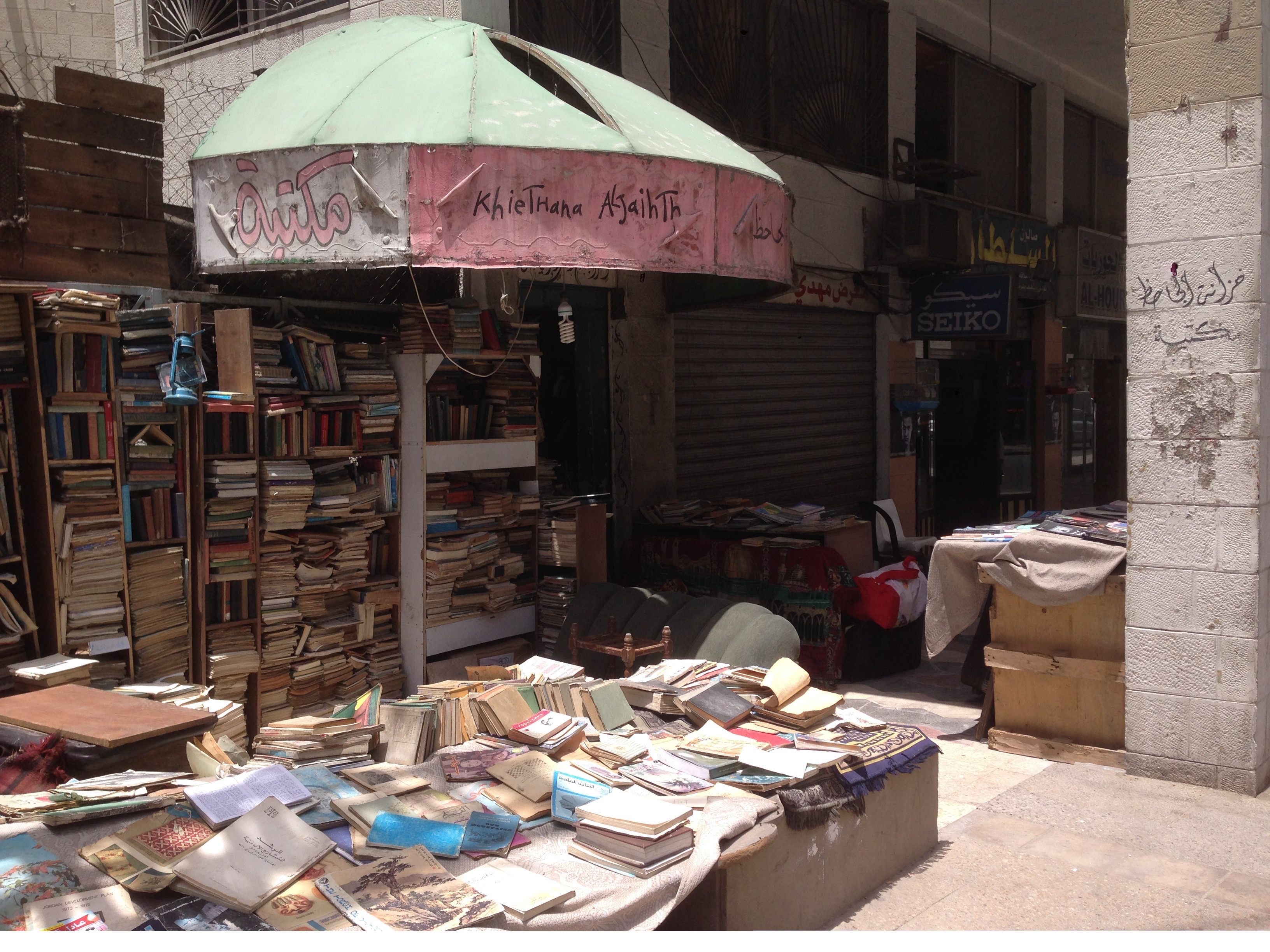
But love alone can’t keep a store alive. In the past year, a bad illness and some poor investments have made the future of al-Maa precarious, and Hamzeh has already scaled back his public book fairs and other projects. A few of his dedicated customers, spearheaded by Alan Elbaum, have started an initiative to save the store, raising thousands of dollars in donations from academics, students, and professors, but Hamzeh is unsure if he will be able to stay open. The fundraising campaign is halfway toward its goal of $15,000, with donations coming in primarily from the U.S. and the UK, but contributions have started to slow down. His clientele is dedicated, but not wealthy, and Hamzeh may have to leave al-Maa, though for many it is impossible to imagine him doing anything but sipping tea at 3 a.m., cross-legged in a corner of his shop, providing literary guidance and carefully curated book suggestions to all who stop by.
As the afternoon winds down, an older man walks in, blind in his right eye. He is looking for books for his three children. Hamzeh springs into action, grabbing books from shelves and expertly teasing out volumes from piles around the store. The man considers the stacks and finally chooses a few novels. He hesitatingly proffers some bills. Hamzeh accepts at once, encouraging him to return when he needs more. “Here on the shelves, the books are dead. The most important thing is that the children read them,” he says.
As the man leaves, Hamzeh shows me a children’s book in Arabic about the Wright brothers that he had pulled down, a copy of one of the first books he ever read. He starts singing “I believe I can fly,” thumbing the pages and telling me how his father had taught him to read during those late, quiet nights at the shop. “Maybe this would be a favorite book,” he says, cautiously. “Everyone thought the Wright brothers were crazy, but they believed in the impossible and chased it. They taught us that man can fly.”
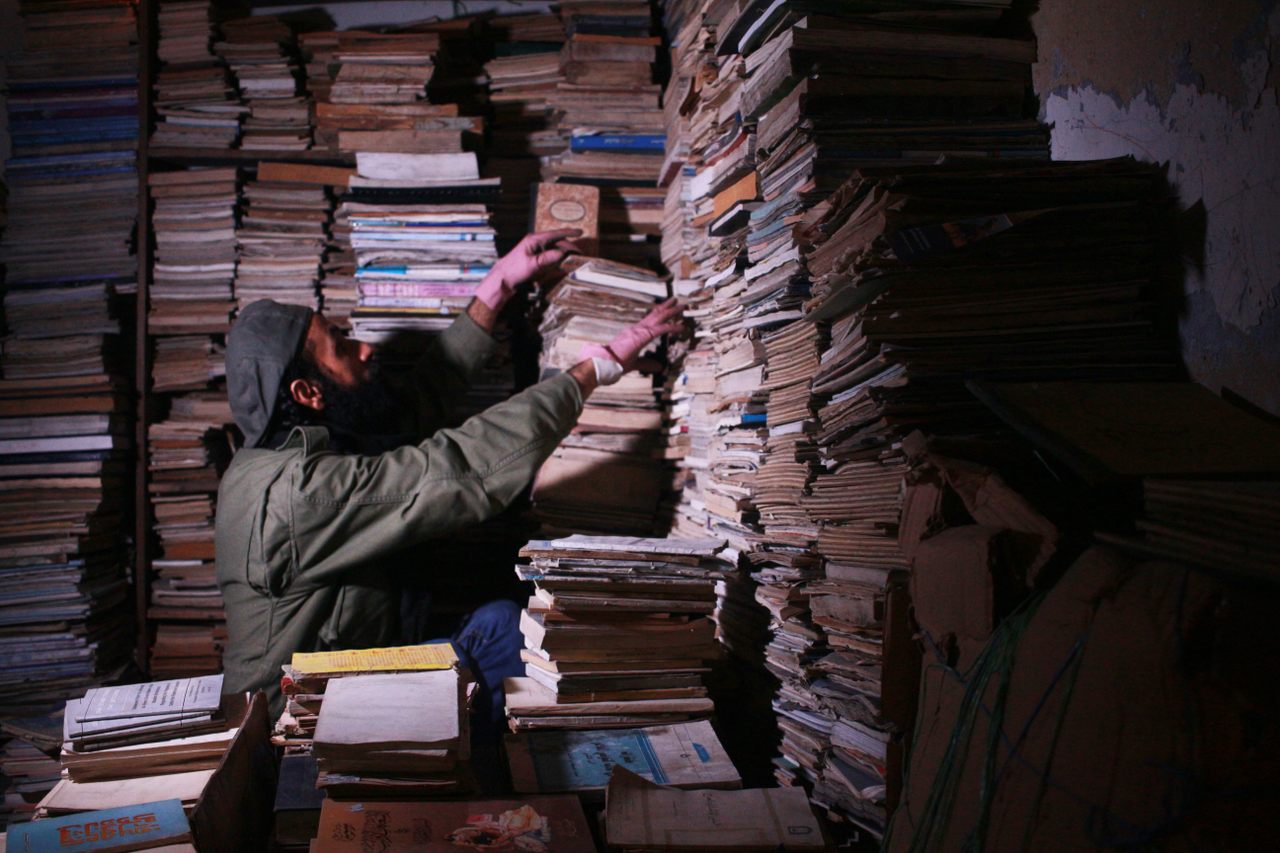
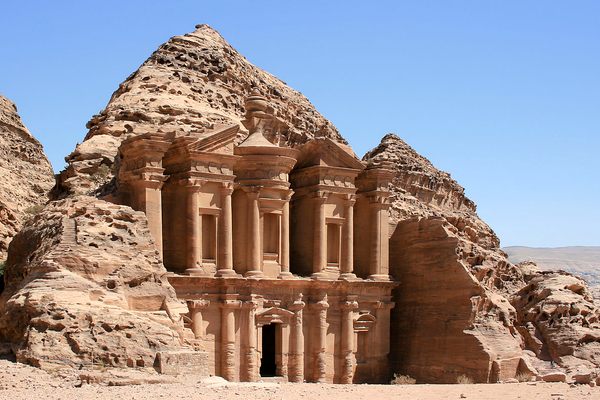





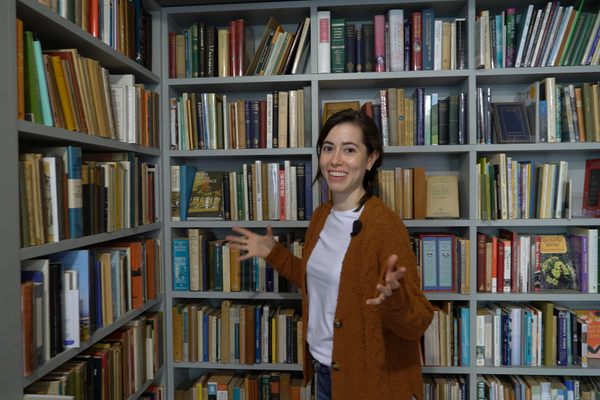




Follow us on Twitter to get the latest on the world's hidden wonders.
Like us on Facebook to get the latest on the world's hidden wonders.
Follow us on Twitter Like us on Facebook